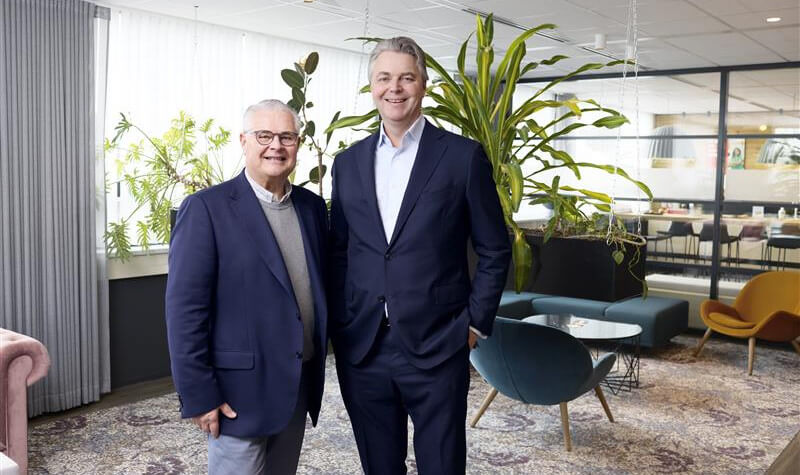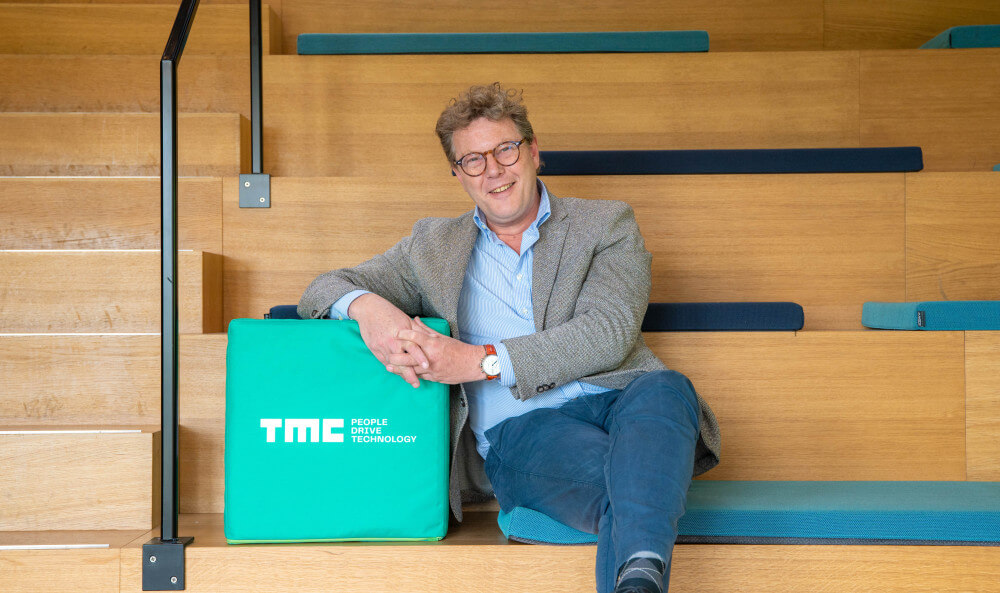
Our young graduates help in developing a VR Tool for suicide prevention
We proudly present a revolutionary VR training tool in collaboration with UCLL University of Applied Sciences. Conversations about suicide remain a taboo, and therefore UCLL initiated a VR experience to teach students and nurses how to best cope with these patients. Our engineers from the Young Graduate Program stepped in to help: they turned the basic version into an interactive, scalable and hyper-realistic learning method.
Reading time: min.Suicide remains a big problem in the Netherlands, and certainly in Belgium. On average, more than five suicides occur each day in the Netherlands and Belgium combined. Belgium has the highest suicide rates in all of Western Europe, as reported by De Telegraaf. This VR tool makes training and conversations more accessible, thus promoting a more open discussion about suicide. Het Nieuwsblad shares alarming figures of 27 suicide attempts per day in Belgium, and initial tests indicate that these numbers could decrease by 3.8 percent through the use of this VR headset. Anabel Wanzeele from Health Innovation UCCL (2023) explains that these figures are based on tests conducted among their students. In these tests, 93% of the participants reported significant learning and a sense of safety through the use of this tool.
Students of UCLL are already using this tool in courses about mental health. Because of the sensitivity of the topic, it is important to create a safe environment to practice with complex conversions. The total scenario in the tool lasts 20 minutes and entails a conversion with a patient that has suicidal thoughts. Students have different interventions in the scenario in which they can choose between three options. The patient in the scenario will react based on the chosen intervention, and the user eventually received feedback about the option chosen twice. “We notice that student get more confidence in having these conversations because the tool creates a safe and comfortable learning environment,” says Carolien Schalenbourg, Researcher and Lector Health and Innovation at UCLL.
"The tool represents an important step forward in the training of nurses in training. It shows how new technologies actually have the potential to push healthcare innovation forward," adds Jaskaran Sandhu, COO of TMC. "We believe this training tool will not only contribute to better care for individuals struggling with suicidality, but also open doors for other applications in numerous disciplines and sectors."
This project is just the beginning, as once this step is completed successfully, the goal is to expand to hospitals, police, fire departments, and other stakeholders within the healthcare sector. We are proud to contribute to innovative and valuable projects like this and hope that this tool will bring about much good in the future.

Reach out for opportunities, collaborations, or questions. We're here to connect.

![pressrelease_level21[1].png pressrelease_level21[1].png](https://www.themembercompany.com/cache/4462ce0d05b0dcb96e3bd48ef7106e67/pressrelease_level21[1].png)
